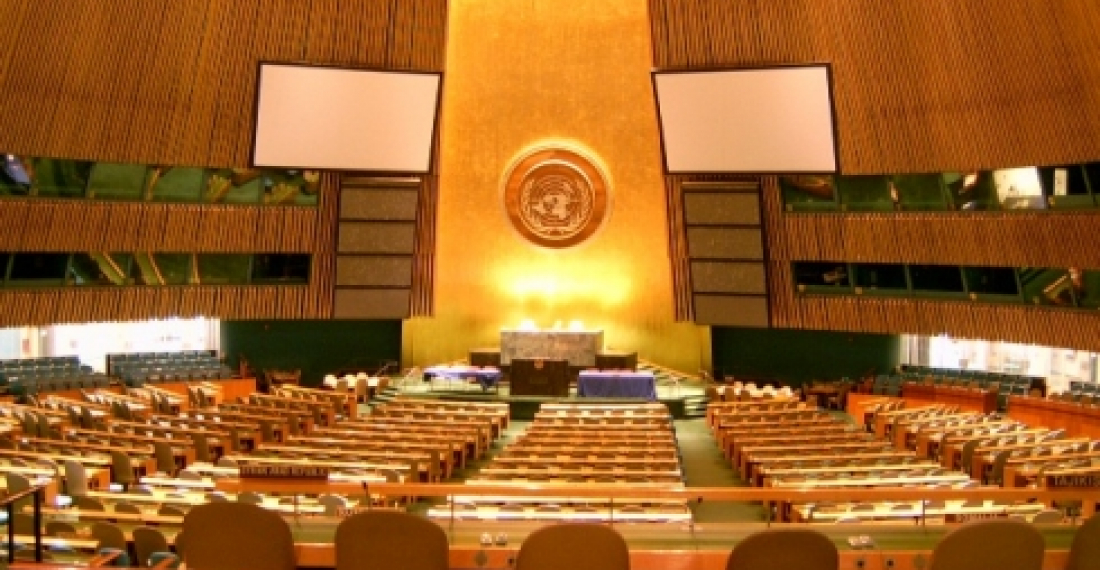The U.N. General Assembly overwhelmingly denounced Syria's crackdown on dissent on Friday in a symbolic effort meant to push the deadlocked Security Council and the world at large into action on stopping the country's civil war. Before the vote, Secretary-General Ban Ki-Moon reminded the Assembly of the fresh violence in the city of Aleppo and drew comparisons between the failure to act in Syria with the international community's failure to protect people from past genocide in Srebrenica, Bosnia, and Rwanda.
"The conflict in Syria is a test of everything this organization stands for," Ban said. "I do not want today's United Nations to fail that test."The vote came after the more powerful Security Council was stopped by a series of Russian and Chinese vetoes on resolutions that would have opened the door to sanctions on Syria. The General Assembly vote was 133 in support of the resolution and 12 against, with 31 abstaining. Syria's ambassador angrily called the vote "a piece of theater."
Russia led the group of countries voting against the resolution which also included Belarus, Bolivia, China, Cuba, Democratic People’s Republic of Korea, Iran, Myanmar, Nicaragua, Syria, Venezuela, Zimbabwe.
The other nine countries members of the CIS were split in their vote: Azerbaijan, Ukraine and Moldova voted for the resolution; Armenia, Kazakhstan and Kyrghistan abstained, and Turkmenistan, Tadjikistan and Uzbekistan were absent from the vote.
Commonspace.eu political editor said in a comment: "Armenia is in a difficult position because it not only needs to take into account Russia's viewpoint, but must also keep in mind the safety of the Armenian community in Syria. The government has already been criticised for not doing enough to protect this community although it is difficult to say what more it can do. Most Armenians in Syria are looking at moving to other Arab countries rather than to Armenia. Armenia's abstention would however have not been well regarded in western capitals, whose governments tried to use the General Assembly to move the UN Security Council into action."
source: commonspace.eu with Associated Press.







